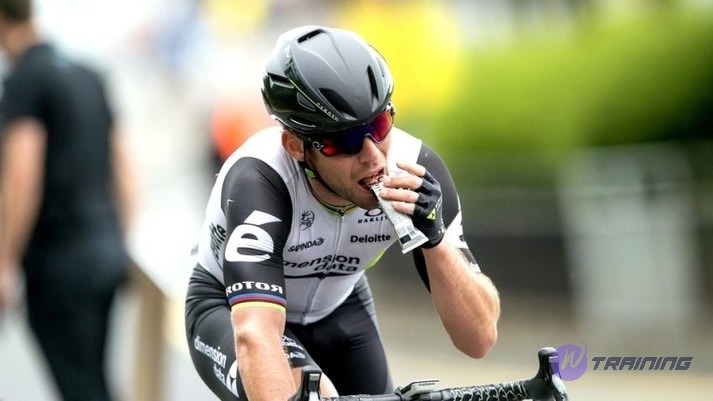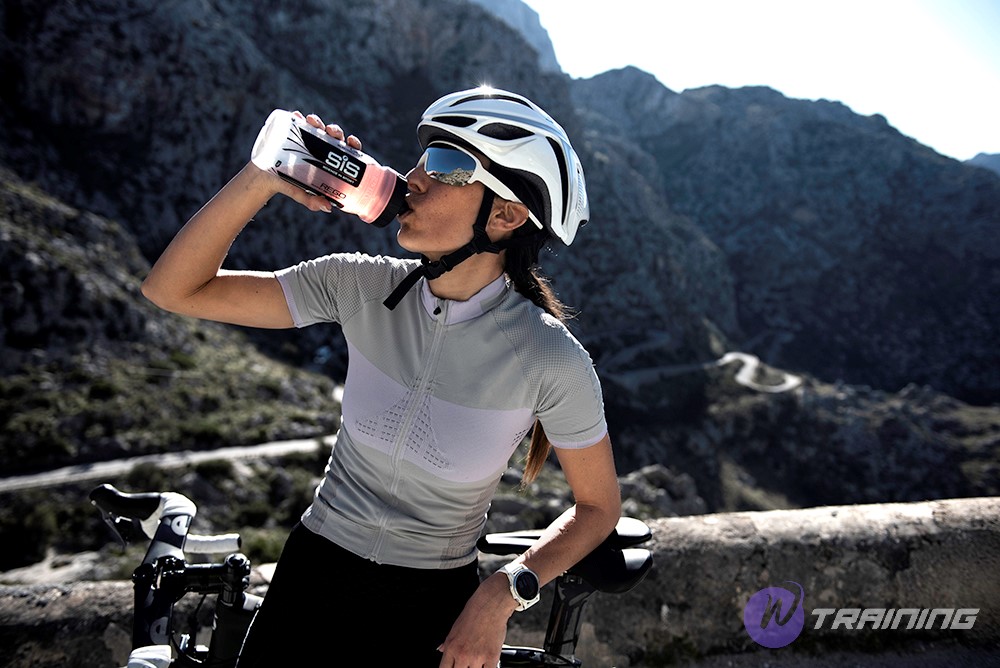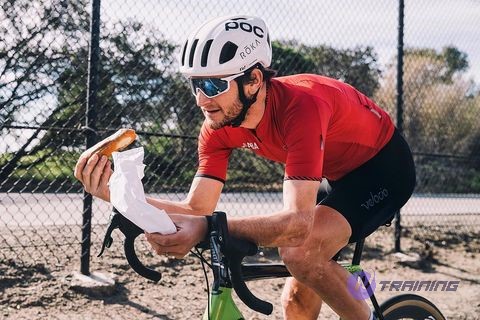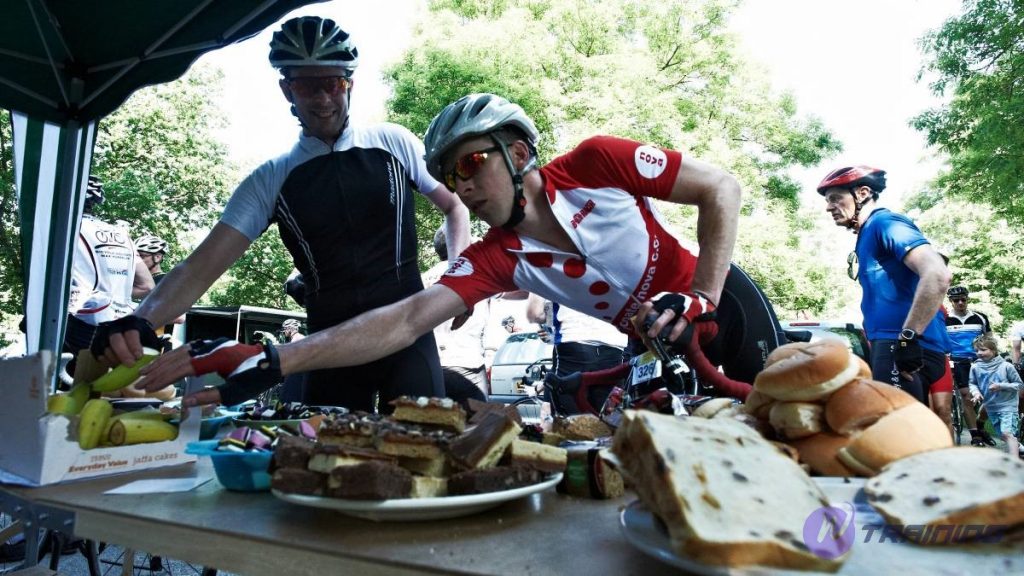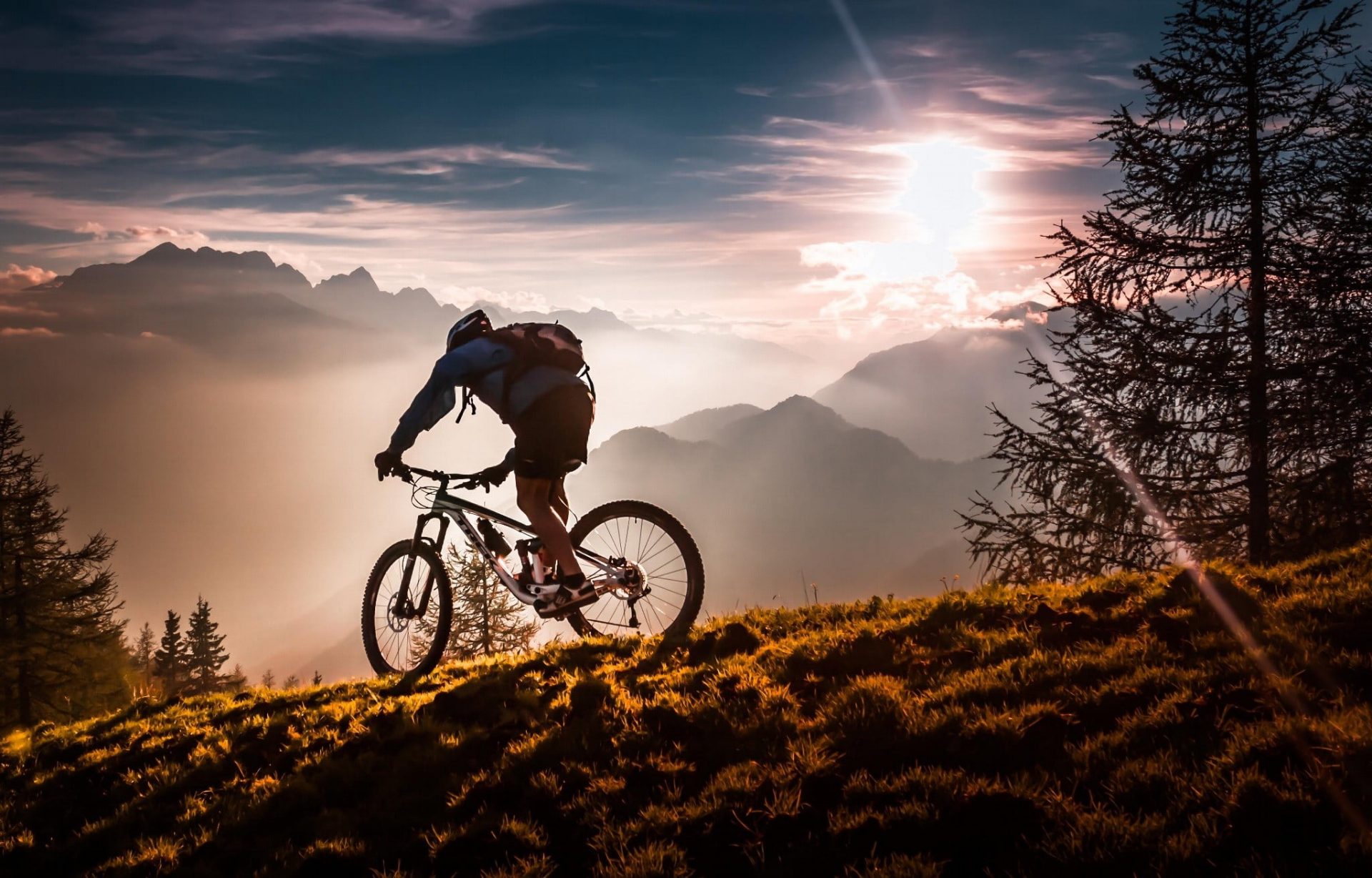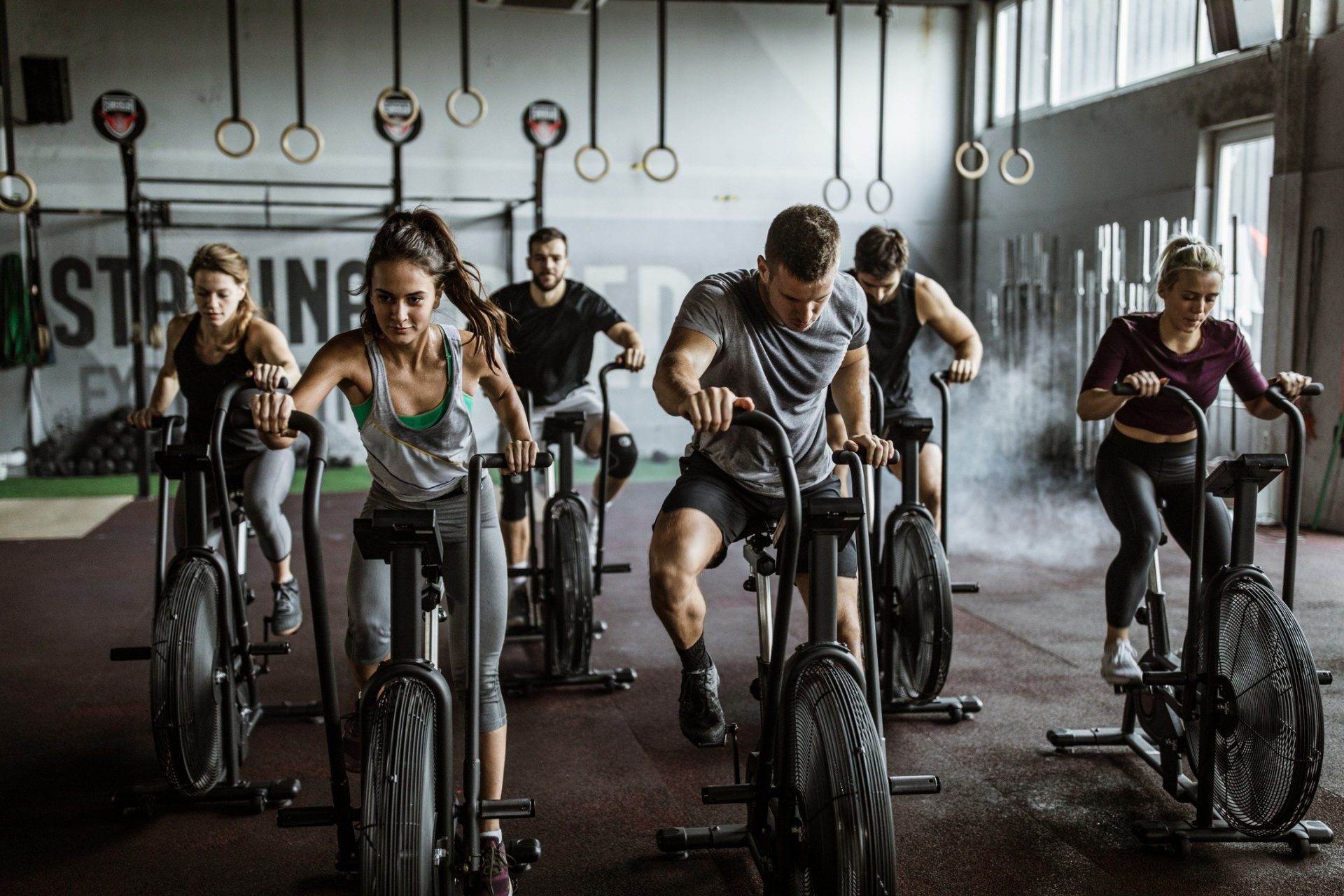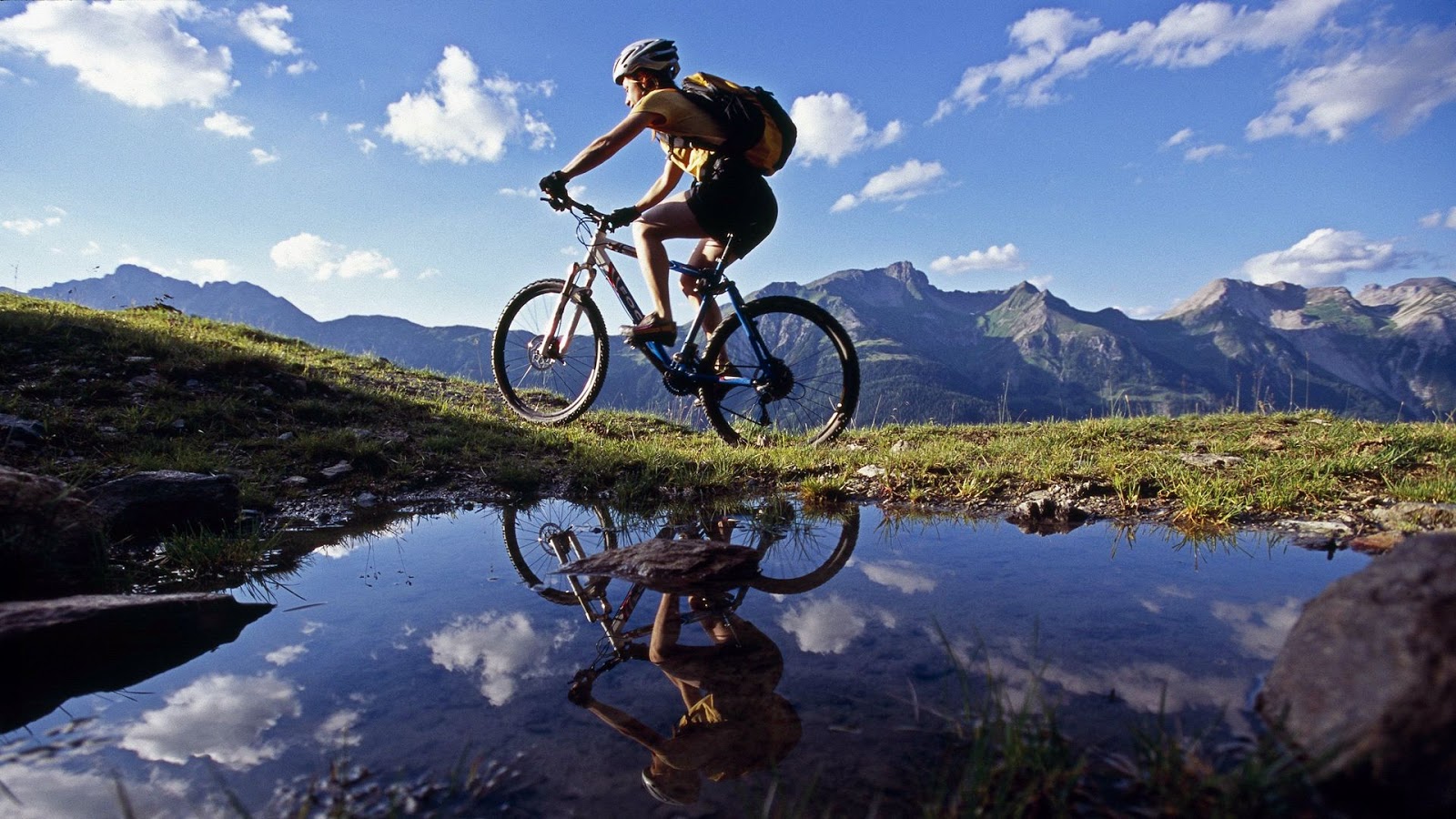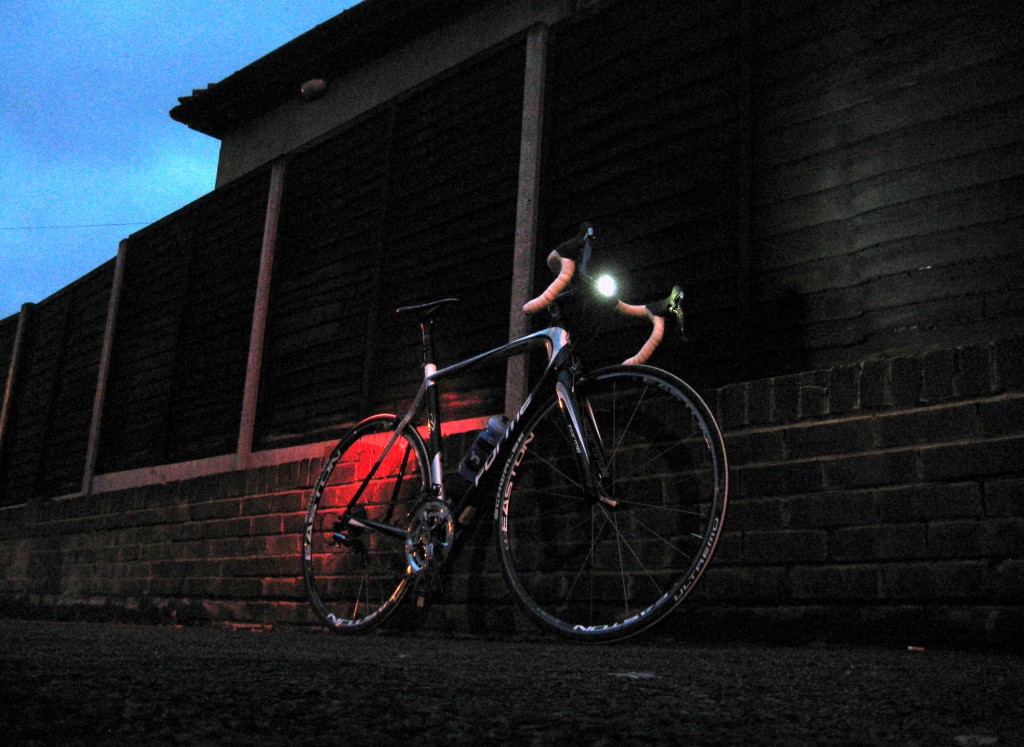Cycling is an exercise that is quite close to our lives and brings a lot of benefits both in terms of health and spirit. Cycling to lose weight is one of the methods that many people choose. Besides cycling properly, a cycling diet is also very important.
The principles of nutrition of a cycling diet you need to know
1. Carbohydrates make you fat?
Many people have this misconception. According to DW Fitness nutritionist, “eating a carb-rich diet is the key to getting in shape.” It is critical to select the appropriate type. Limit crackers, white bread, and pasta in favor of slow-growing carbohydrates such as sweet potatoes, toast, and brown rice.
The right carbs will help you maintain your blood sugar levels, increase your metabolism, and fuel your exercise, which means you push harder, perform better, get stronger, and use up more energy. more during exercise. Low-carb diets can make you feel anxious and depressed, as carbs are the main source of fuel for the brain. A piece of advice for bikers: eating a banana before cycling will increase cycling efficiency.
2. Need to load Carbohydrates before cycling
According to Gareth Nicholas, a nutritionist at MaxiNutrition, “having a full range of energy and hydration is best for any cycling trip.”
Energy and water are the deciding factors for a good ride in terms of distance and intensity, but a cyclist’s approach should be different for a 20km run versus a 100km run. As a result, if you’re going on a long trip, you’ll need to pack more carbs.
3. Does fat help you ride longer?
In some cases, this is not entirely true. It is true that a gram of fat contains more energy than an equivalent gram of carbohydrate or protein. According to nutritionist Nicholas, when it comes to converting energy into useful fuel for cycling, the human body chooses its energy source primarily based on the intensity of the exercise.
Carbohydrates are still the most important when the intensity of the exercise is high. Carbohydrate is typically the first fuel of choice for any endurance activity, and as the intensity of exercise increases, so does the need for carbohydrates. The body can adapt to using fat in the absence of carbs, but high-intensity carbs are still the best choice for high-intensity exercise.
4. Protein makes cyclists leaner?
This is completely incorrect. “Protein has a direct effect on muscle growth and development, particularly when combined with resistance exercise (muscle stimulation),” Nicholas explains. Protein is an essential nutrient in a racer’s diet because it helps to build muscle more efficiently with the right amount of protein in the diet.”
5. Drink only when you are thirsty
This is a bad habit that should be broken. When riding a bike, keep in mind that you are drinking to stay hydrated rather than for an immediate response. Dehydration is unquestionably harmful to human physiology and, to a greater extent, can be fatal. During cycling, you must consider how long you will need to drink enough water to maintain, to be able to drink the amount of water, and to plan a reasonable time.
See also: Sign And Symptoms Of Dehydration While Exercising
6. Has an optimal macronutrient ratio
“Macronutrient ratios are the most basic way to create a nutrition program,” Nicholas says. The 60:20:20 rule states that 60 percent of your diet should be carbohydrates, 20 percent protein, and 20 percent fat. In fact, a diet for athletes, particularly cyclists, should be built on this foundation.
7. Cycling can damage your teeth
Indeed, cyclists frequently experience dry mouth as they breathe more deeply, and wind can impair saliva production,” says Tim Bradstock-Smith, consultant cosmetic dentistry at London Smile Clinic.
One piece of advice for bikers is to sip water on a regular basis to stimulate saliva production. Sugary and acidic sports drinks can cause premature wear on the tooth surface. Cyclists are frequently victims of jaw clamping and teeth grinding, which causes jaw pain and problems. Wear a rubber brace to protect your teeth while cycling, especially if you get into an accident.”
8. Skipping breakfast will make you thinner?
Your body has gone a long time without food after sleeping and requires an energy boost to fuel the next day. When you consume less energy than your body requires, your body adapts by making the most of the food you consume. It retains the fat and begins to rely on the muscles for energy. Your metabolism slows down as you lose muscle mass. According to research, restricting your food intake can also make you feel uneasy. This stress can cause an increase in cortisol, which increases the retention of visceral fat cells in areas such as the stomach, which is the opposite of what we’re aiming for with diet.
9. Homemade sports drinks are just as good as branded ones
In fact, cyclists require high-carbohydrate sports drinks to maintain energy levels over long periods of exercise.
Taste is important because it is human nature to consume as much alcohol as possible. The perfect and effective homemade sports drink is water mixed with sugar and salt, but it does not taste as good as the branded ones. Add ice and a slice of lemon to save money without sacrificing flavor. Alternatively, honey can be used in place of sugar.
10. Is coffee good for long trips?
Coffee consumption prior to exercise demonstrates the effect. In fact, properly consuming coffee will assist you in remaining mentally alert while cycling long distances. But don’t let that convince you to drink coffee while riding your bike. Too much coffee will make your nerves tense, distracting you, and cause you to ride quickly.
How to make a cycling diet plan?
1. Foods to eat
According to nutritionists, in addition to water, you should replenish your body after each tiring exercise session on bicycles with carbohydrates and protein. Carbohydrates help replenish glycogen lost during cycling exercises, and protein aids in muscle recovery. Bananas, sweet potatoes, eggs, nuts, cantaloupe, berries, rice, chicken, chocolate milk, and fruit smoothies contain these two nutrients.
2. Foods to avoid
Carbohydrates are not all created equal, and they can vary greatly depending on their position on the Glycemic Index (GI). High GI foods are quickly digested and provide the body with an immediate boost in blood glucose levels; however, this does not last long and is not ideal for an individual. A group of cyclists sets out on a long ride. Tortillas, salads, carbonated drinks, late-night snacks, and pasta are all foods that cyclists should avoid.
3. Suggest a detailed menu
- Daily mode
-
- Breakfast: oatmeal with eggs
- Morning snack: fruit and unsweetened yogurt
- Lunch: cereal with vegetables and protein
- Afternoon snack: fruit and nuts
- Dinner: fish (or lean meat) with vegetables
- Before going to bed: a small glass of milk
- When cycling long distances (biking in the morning)
-
- Breakfast: oatmeal with fruit, eggs
- With 4 hours of long-distance training, you will burn about 60 to 90g of carbohydrates with a little fat and protein.
- During workouts: granola bars and protein smoothies for energy.
- Lunch (post-workout meal): sandwich (using rye bread) and fruit
- Dinner: fish with grilled broccoli and sweet potatoes
- Before going to bed: small glass of milk
- Menu when cycling in the evening
-
- Breakfast: toast with eggs
- Morning snack: cheese or yogurt with fruit
- Lunch: rice with beans, vegetables and fruit (avocado)
- Meal before cycling: Peanut butter with banana
- Cycling 2 hours in a group, you will burn 30 to 45 grams of carbohydrates per hour
- Meal after the ride: whole grain bread with protein and fruit smoothie
- Menu for high-intensity exercises in the morning
-
- Before training: coffee and banana
- Breakfast: oatmeal with eggs and coffee
- Lunch: Whole-grain tuna sandwich with tomato soup
- Afternoon snack: cheese and some fruit
- Dinner: steak with grilled vegetables
- Before going to bed: popcorn with nutritional yeast
Now find what will work for you and get your personalized cycling diet. Enjoy every minute of your ride!
Read more:
9 Incredible Benefits Of Cycling, Should Know Before Start
How Can We Make An Efficient Cycling Weight Loss Plan?
